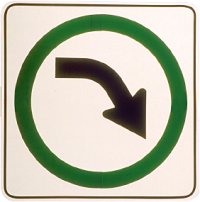Home Page
The latest articles, features and news.


Read About...


|
| | |
|
10 July 2006
Combination Therapy Needed When Erectile Dysfunction Drugs Fail
by George Atkinson  As baby boomers get older, it's a safe bet that erectile dysfunction will become a growing (no pun intended) concern. While oral medications like Viagra (known as PDE-5 inhibitors) have revolutionized the treatment of erectile dysfunction, unfortunately not all men respond to these drugs. Alternative treatments, such as surgical prosthetic implantation are available, but can be too daunting for many men to undertake.
As baby boomers get older, it's a safe bet that erectile dysfunction will become a growing (no pun intended) concern. While oral medications like Viagra (known as PDE-5 inhibitors) have revolutionized the treatment of erectile dysfunction, unfortunately not all men respond to these drugs. Alternative treatments, such as surgical prosthetic implantation are available, but can be too daunting for many men to undertake. But men who don't respond to oral medications shouldn't give up hope, says urologist Jack Mydlo, of the Temple University School of Medicine. He believes that when erectile medications fail, combination therapy might be the answer. "Medication used with other non-surgical treatments, such as pumps, injections or urethral suppositories, offers a safe and effective alternative for the small but significant portion of the population for whom oral medication alone doesn't work," he said. According to Mydlo, the root causes of erectile dysfunction are many and varied. He cited smoking, obesity, cardiovascular disease and psychological stress among the chief culprits. He noted that obesity was a double-edged sword as it had physical (enzymes in fat tissue convert testosterone to estrogen) and emotional consequences (overweight men usually have poor body image), both of which can lead to erectile dysfunction. Other factors including pelvic surgery, cancer treatments and other medications (such as those for mental illness or high blood pressure) can also contribute to erectile dysfunction. Mydlo believes that the tailored combination of different therapies - such as drugs, pumps, injections or suppositories - can overcome several problems simultaneously, as each therapy addresses a different aspect of the problem. "The good news is that in 2006, no one should have to suffer from erectile dysfunction. It just depends on how far you want to go," he said, adding that motivation, persistence and a supportive partner were also vital in beating the problem. Based on material from the Temple University School of Medicine
|
|

